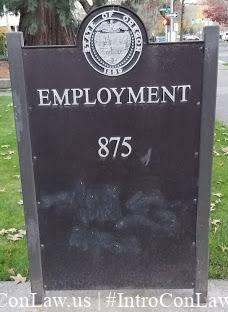
Today, the US Court of Appeals for the Fifth Circuit issued a stay of the the Occupational Health and Safety Administration's (OSHA) newly announced Emergency Temporary Standard (ETS) mandate COVID-19 vaccination or testing combined with masking in private workplaces controlled by employers with 100 or more employees. Here is the short ruling in its entirety:
Before the court is the petitioners' emergency motion to stay enforcement of the Occupational Safety and Health Administration's November 5, 2021 Emergency Temporary Standard(the "Mandate") pending expedited judicial review.
Because the petitions give cause to believe there are grave statutory and constitutional issues with the Mandate, the Mandate is hereby STAYED pending further action by this court.
The Government shall respond to the petitioners' motion for a permanent injunction by 5:00 PM on Monday, November 8. The petitioners shall file any reply by 5:00 PM on Tuesday, November 9.
So ordered.
The order was issued per curiam, on behalf of all three judges on the panel (all of whom are conservative Republican nominees, for those keeping track). The stay of the mandate is only temporary. And - as the court suggests - may be lifted after "expedited judicial review," which could happen very soon, given the accelerated briefing schedule laid out in order.
This case was filed by a group of employers and several GOP-controlled state governments. They likely chose the Fifth Circuit because they hoped its relatively conservative orientation would give them a greater chance of winning. An unusual statutory provision allows this case to be filed directly in a federal appellate court, as opposed to first having to be heard by a trial court (like nearly all other federal civil suits).
I said previously that, while I think the vaccination mandate has significant legal vulnerabilities and might set a dangerous precedent if upheld, I also don't really know how courts will react to the legal arguments against it. We still don't know the answer to that question with anything like certainty. But the Fifth Circuit's statement that "the petitions give cause to believe there are grave statutory and constitutional issues with the Mandate" is at least a sign that the judges think there is a serious case to be made against the mandate. They clear do not believe the case is a slam dunk for the federal government.
Even if the Fifth Circuit panel ultimately rules against the Biden administration, that won't necessarily be the end of the legal battle over this issue. Much depends on how broad the ruling is, and on what grounds. It's possible OSHA could respond to a narrow ruling against it by limiting the scope of the mandate or adjusting it in some other way. It's also possible that a lower-court ruling against OSHA might be reversed or limited by the Supreme Court.
This is just the beginning of the legal battle over the OSHA ETS vaccination mandate. The agency might yet overcome this initial setback. Still, if I were an administration lawyer, I wouldn't be very happy right now. If a panel of federal circuit court judges says the policy you are defending may have "grave statutory and constitutional issues," that's rarely a good sign for your case.
In previous posts on the administration's vaccination mandate policy, I have noted that some of their other vaccine mandates (e.g. - those covering federal employees) are on relatively firm legal ground, and that I am sympathetic to the moral and policy case for vaccine mandates in some situations (see here and here). But I also believe the OSHA employer mandate is a case of executive overreach, and might set a dangerous precedent, if upheld. We may soon learn whether and to what extent the Fifth Circuit agrees with that assessment.




Show Comments (239)